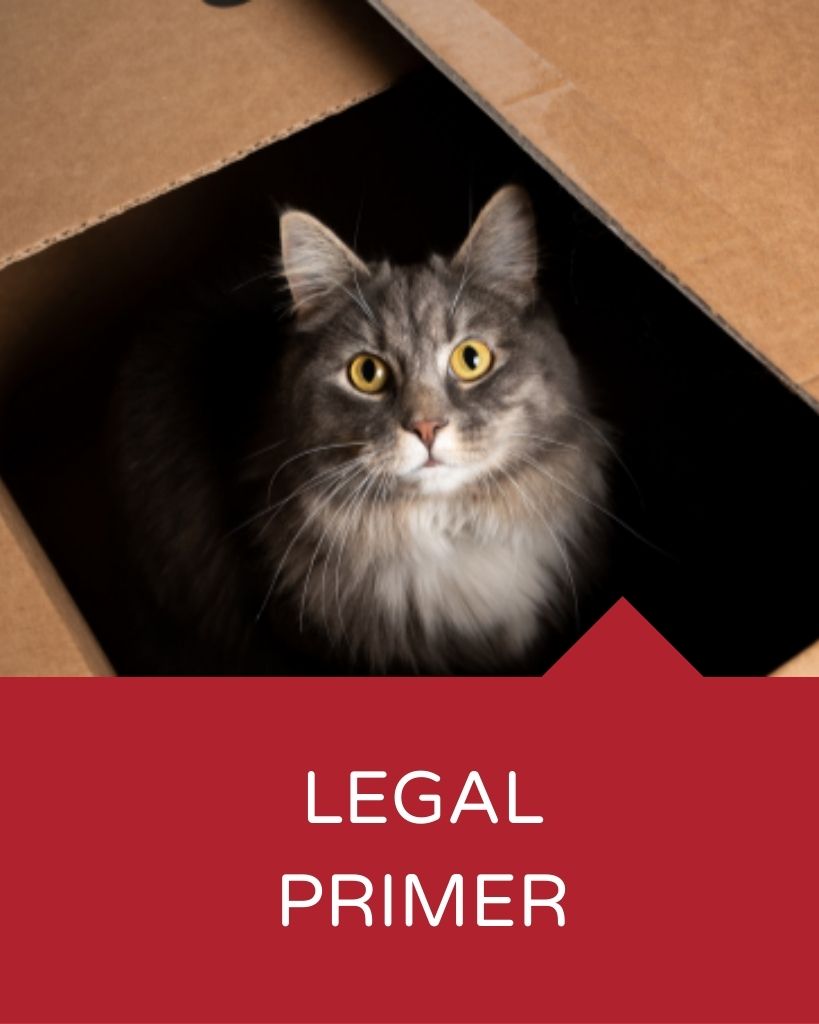Please note that the information provided on the Montreal SPCA website is for informational purposes only. It does not constitute legal advice or opinion of any kind, and the fact that it is made available to you does not create a lawyer-client relationship. The Montreal SPCA recommends consulting a lawyer regarding any specific legal matter. While the Montreal SPCA strives to publish accurate information, it makes no guarantee as to its accuracy, currency, or completeness.
Are you currently in a dispute with your landlord regarding your animal?
In principle, clauses in leases or building by-laws that prohibit animals from being kept residential housing units are considered valid by courts. There are, however, several possible exceptions to this rule, for example, in the case of a service animal. Additionally, if a landlord wants to force you to get rid of your animal, they must go through the Tribunal administratif du lodgement or TAL (formerly known as the Régie du logement); under no circumstances can the landlord physically remove an animal from a housing unit.
Consult this page to learn more about the state of the law with respect to no-pet clauses, in which cases the law provides for exceptions and how a landlord must proceed in order to enforce such a clause (up to date as of March 2022).
![]() Download this model letter to send to your landlord.
Download this model letter to send to your landlord.
Are you currently in a dispute with your syndicate of co-owners concerning your animal?
You should know that any clause prohibiting the presence of animals in a declaration of co-ownership is invalid and thus without legal effect. However, at all times, a condominium owner who wishes to exercise their right to have an animal must do so in a reasonable manner and in such a way as to not interfere with other co-owners’ normal and peaceful enjoyment of the property.
![]() Download this model letter to send to your syndicate of co-owners (up to date as of March 2022).
Download this model letter to send to your syndicate of co-owners (up to date as of March 2022).
Recommendations
In order to avoid any problems, a tenant with an animal should act in a particularly respectful manner towards the premises, the landlord and the other tenants. They should also take certain precautions to ensure that any disturbance caused by the animal is kept to a minimum.
Such precautions include:
— Making sure, before signing a lease, that neither the lease itself nor the building’s by-laws include a no-pets clause. If the building has a by-law, the landlord is required to provide a copy to the tenant before the lease is signed.
— Ensuring that the animal is registered with the municipality (i.e. has a valid municipal tag), spayed or neutered and up-to-date on vaccines.
— Take all necessary measures to avoid or resolve any behavioural problems that could cause a disturbance (e.g. barking) or damages to the housing unit (e.g., by making sure not to leave the animal alone for long periods in the apartment, ensuring that the animal receives enough stimulation and exercise, or by taking dog training classes).
— Keeping the housing unit clean and in good condition, as well as always picking up after the animal, especially if the animal goes outdoors.
— Complying with municipal by-laws concerning animals and the cleanliness of housing units.









